Family 'turned around' by multiple ME diagnoses
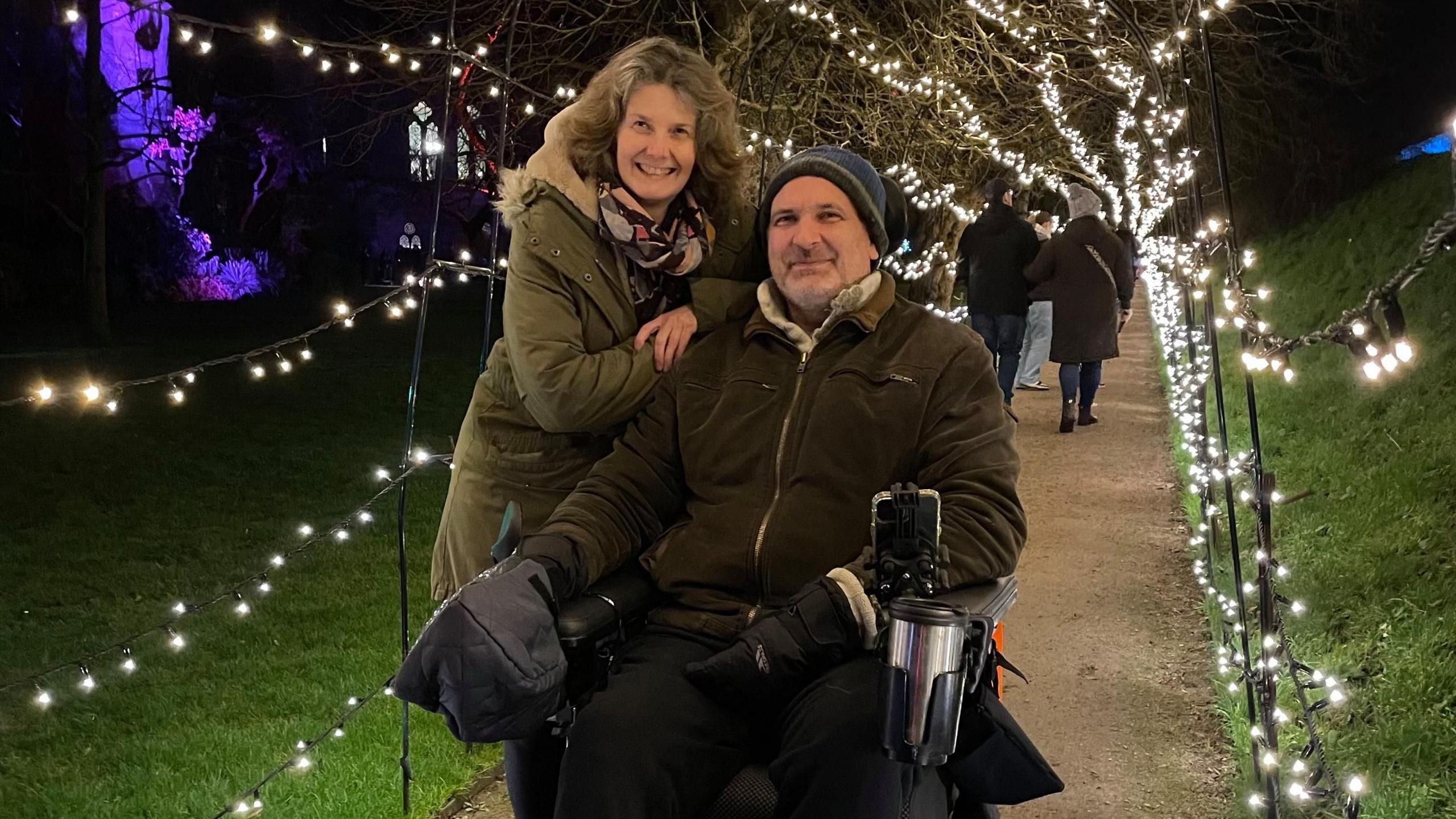
Jon developed ME in his early 40s with his wife giving up her career to help care for him.
- Published
Just under 10 years ago, Julie Heath's husband Jon suffered blow to his head in a car crash. "He has never recovered from it," she said.
Mr Heath went on to be diagnosed with ME, also known as chronic fatigue syndrome. The couple's two children were also diagnosed with ME in the years that followed, and all three now use powered wheelchairs to get around.
Mrs Heath said the family has had "many battles along the way" and this week their local MP held a debate in parliament calling for better NHS care for people living with ME, and more research into the condition.
A Department of Health and Social Care spokesperson said it was "committed to improving care and support" for people with ME.
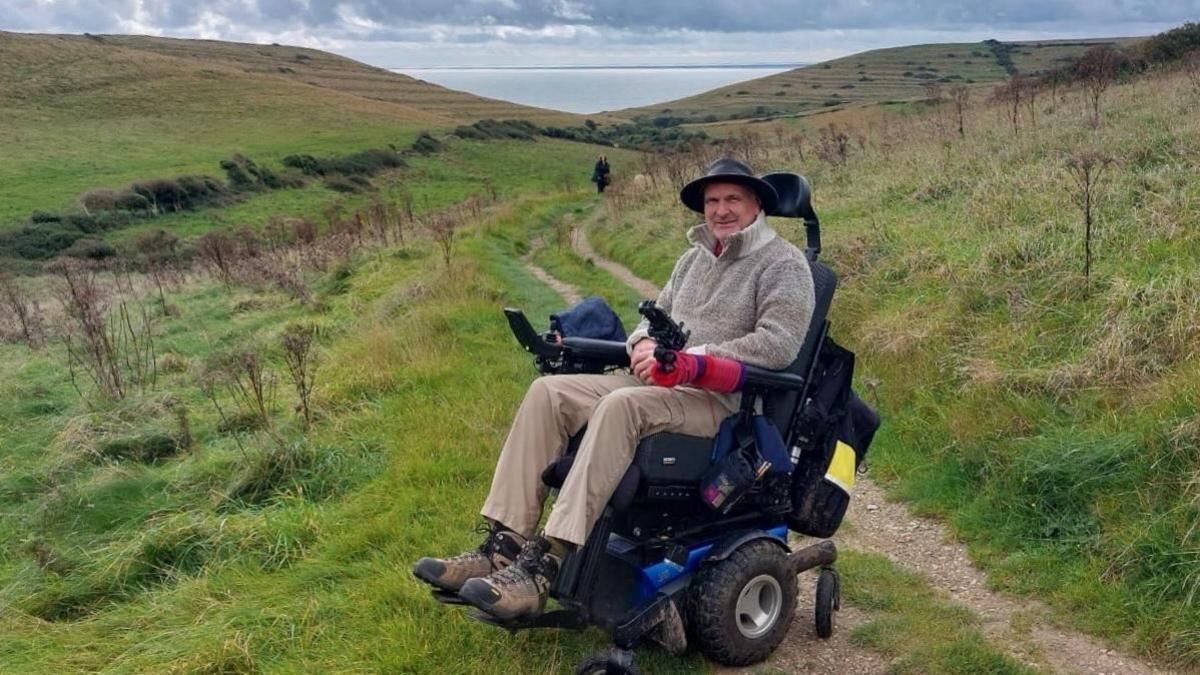
Shortly after this photo was taken, Jon fell out of his powerchair trying to get back up to the gate but 'always has a sense of adventure', Julie says.
ME - myalgic encephalomyelitis - is a complex, long-term condition which can impact every part of the body and is difficult to diagnose. It affects everyone differently and its causes are still being investigated.
For many people it causes extreme tiredness which can impact daily activities, affect sleep and the ability to concentrate, according to the NHS, external.
The ME Association , externalsaid there are an estimated 1.35 million people with ME or ME-like symptoms, including some with Long Covid, in the UK.
After the car crash in his early 40s Mr Heath was originally diagnosed as having a mild brain injury but pain, fatigue and mobility issues in the ensuing years led to an ME diagnosis with the crash as a "trigger event", his wife said.
"Jon has about half a day's energy in him each day. He is very lucky to have a supportive employer," she added.
He is able to work from home, even from bed, while she does "everything else".
"Jon's diagnosis turned our lives around," said Mrs Heath.
She said financially life is hard for the family, and they do not go out in the evenings, with everything in their lives now "micro-managed".
It is very hard to go on holidays and plans they had for retirement now won't happen, she added.
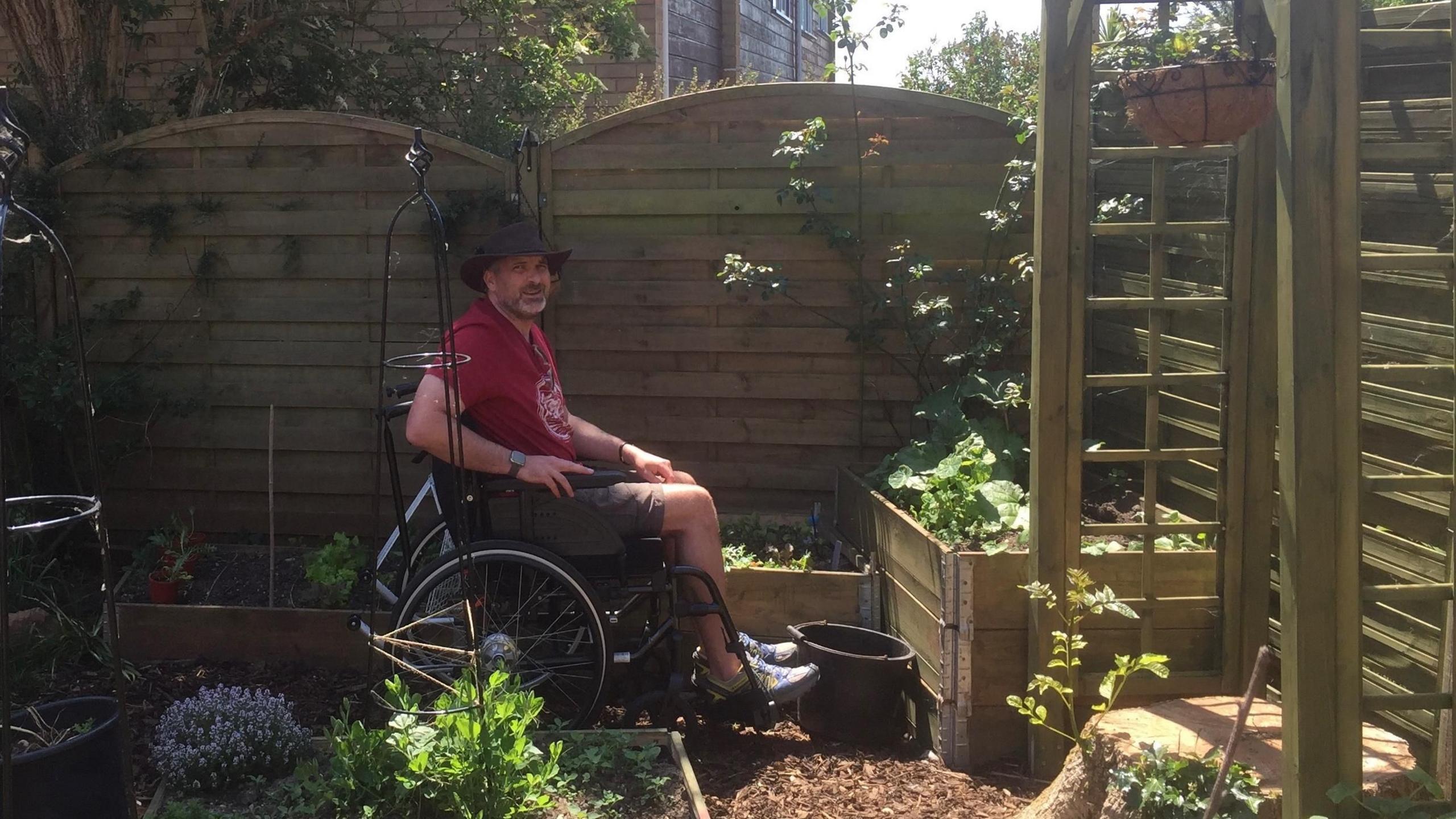
Julie and Jon had the family garden adapted so he could reach the flowerbeds sitting down.
Their daughter had glandular fever eight years ago when she was doing her GCSEs - "an A-grade student", Julie said - and was also diagnosed with Coeliac disease.
After not recovering she ended up getting an ME diagnosis, like her father.
Her ME symptoms were severe for about two years, leaving her bed-bound, with an aversion to light and not eating much at all, instead taking nutritional drinks to maintain her calorie intake.
Their son, "weirdly" Mrs Heath said, has followed a similar pattern to their daughter with high levels of physical pain and fatigue leading to his ME diagnosis.
She added the family has had "many battles along the way" - particularly around mobility. "It's been a fight every time," she said.
All three family members need powered wheelchairs and claim Personal Independence Payments (PIP) so they can be independent.
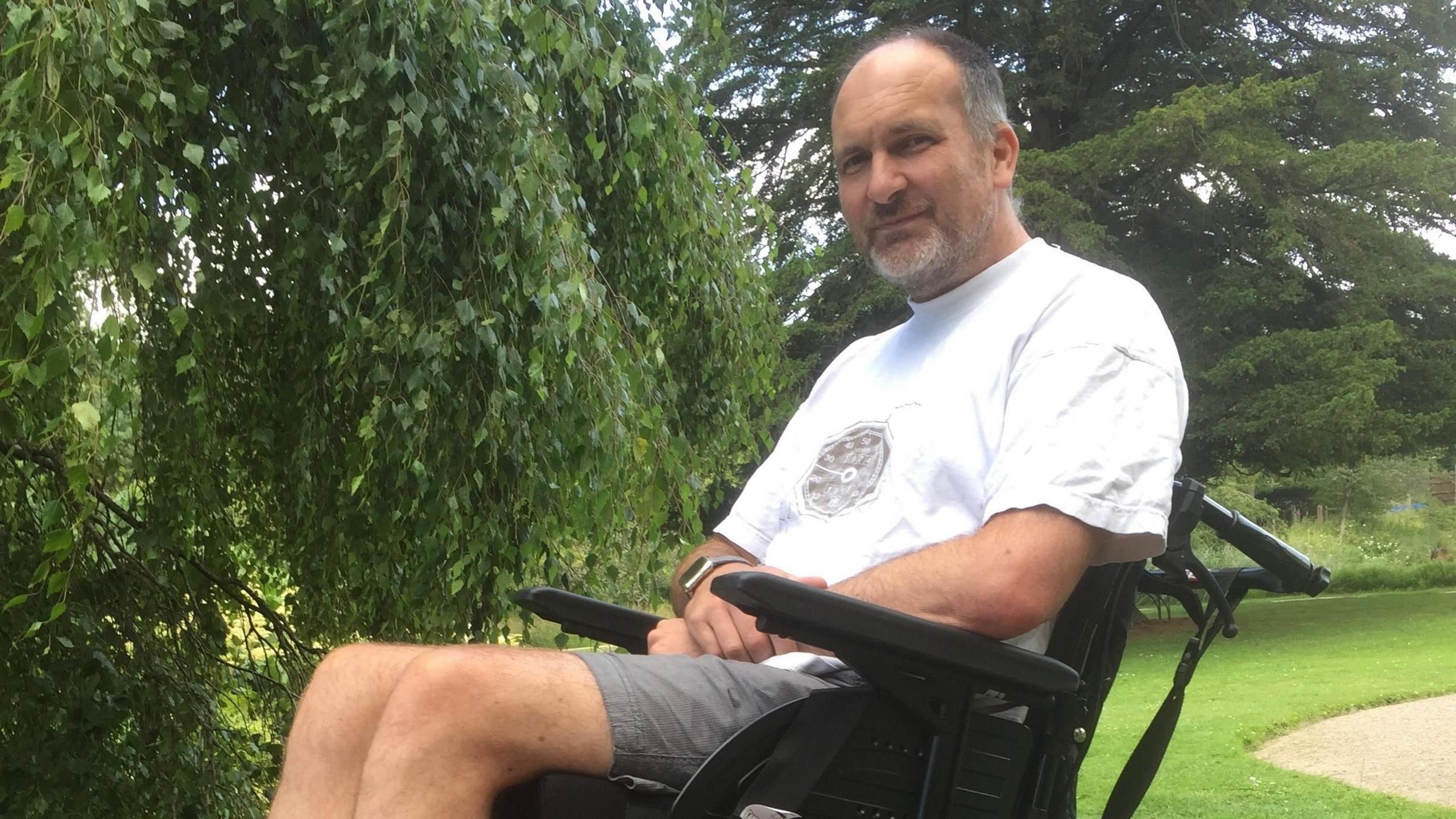
Getting out into quiet green spaces such as the Bishop's Palace in Wells is 'incredibly important for Jon's mental wellbeing', Mrs Heath said
Julie, 55, and Jon, 50, live in Wells in Somerset with their children living nearby with their partners.
They have been lobbying their local MP Tessa Munt, Lib Dem, Wells and Mendip Hills, who this week held a debate in Westminster Hall in parliament.
Tessa Munt said while she "welcomed" a new NHS ME/CFS Delivery Plan, it included "no new substantial funding for ME".
"Despite proposing to 'explore' specialist services, it offers no support to those in crisis, risking the lives of ME sufferers across the country. Urgent action, accountability and specialist services are needed," Ms Munt said.
"For too many sufferers, ME has meant years confined to bed, living in darkness, hoping a cure will be found."
'Transforming care'
A Department of Health and Social Care spokesperson said: "We recognise how devastating myalgic encephalomyelitis /chronic fatigue syndrome (ME/CFS) can be and are committed to improving care and support for people affected by the condition.
"Our new ME/CFS final delivery plan set out clear steps for transforming care and support for patients, by investing in research, helping people live more independently, and tackling stigma and lack of awareness through improved training for NHS staff.
"It also sets out a series of actions which will help address the key challenges and drive forward improvements to outcomes and quality of life for people living with the condition."
Get in touch
Tell us which stories we should cover in Somerset
Follow BBC Somerset on Facebook, external and X, external. Send your story ideas to us on email or via WhatsApp on 0800 313 4630.
- Published21 January
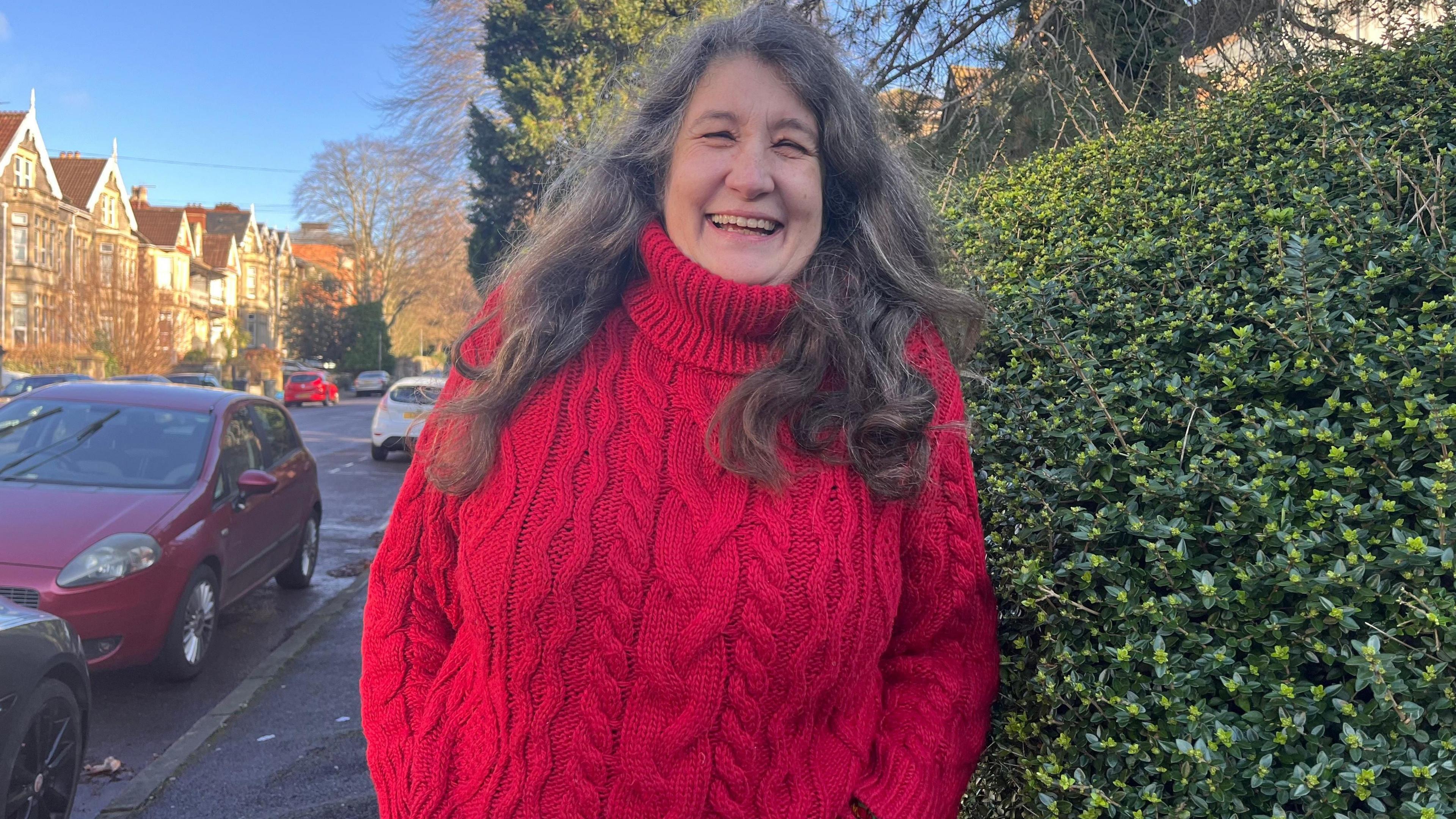
- Published13 October 2024
